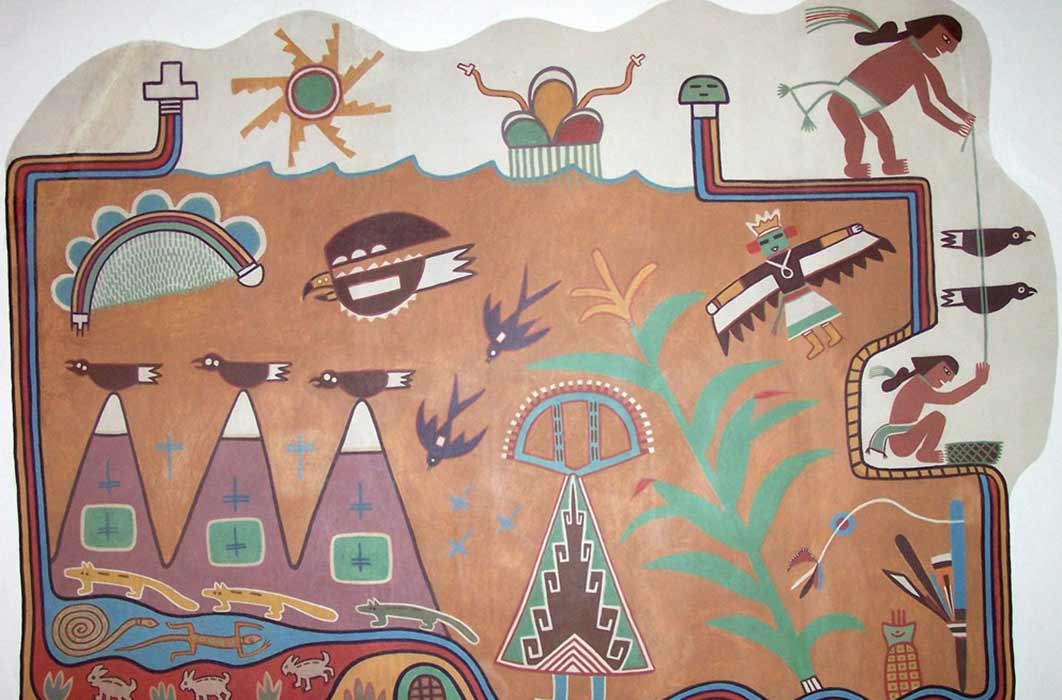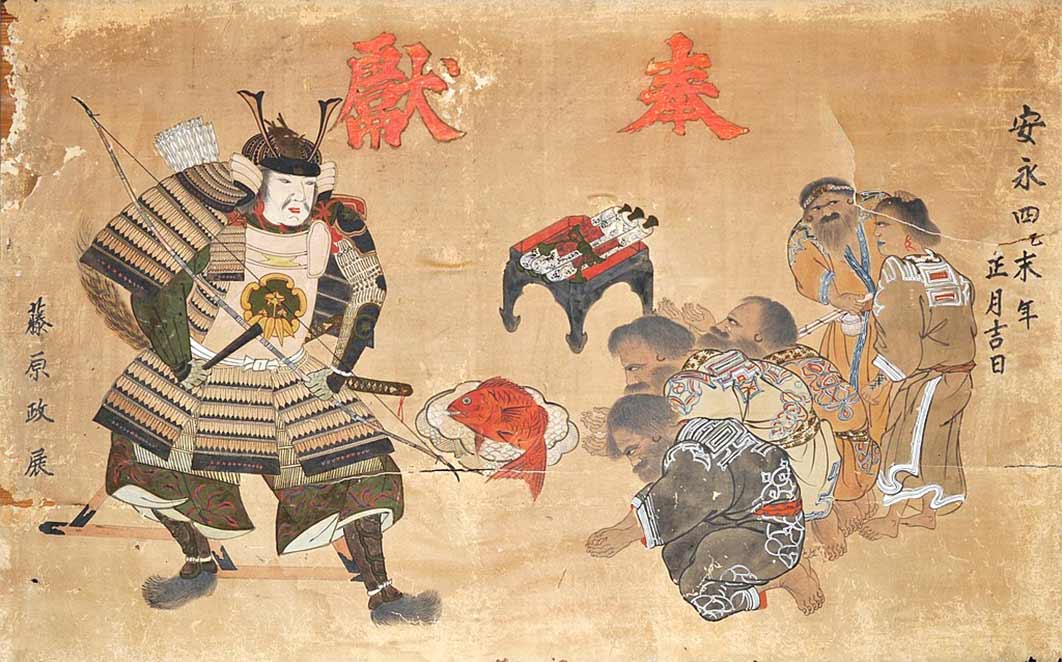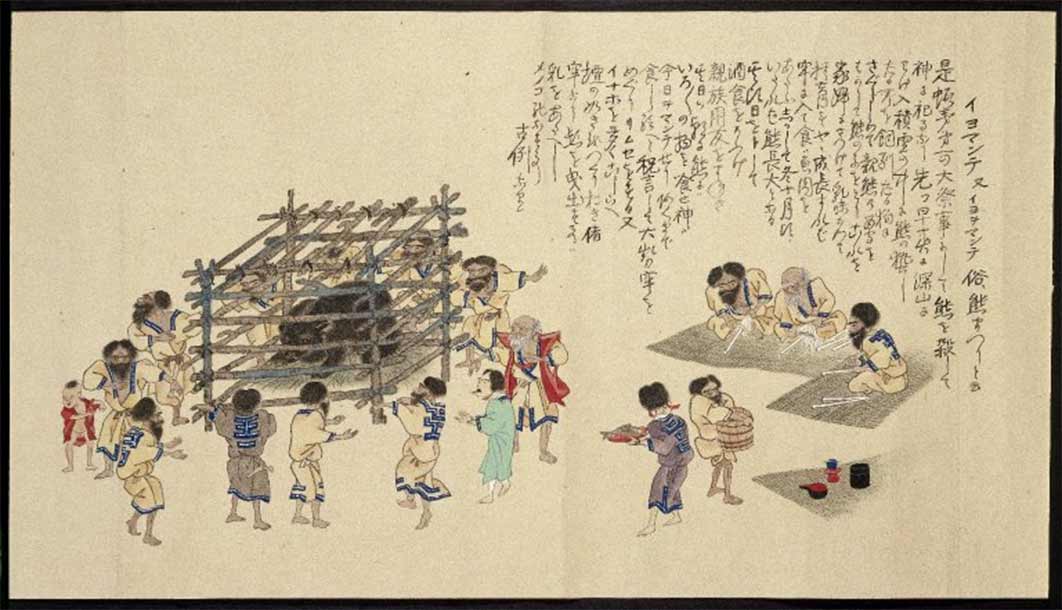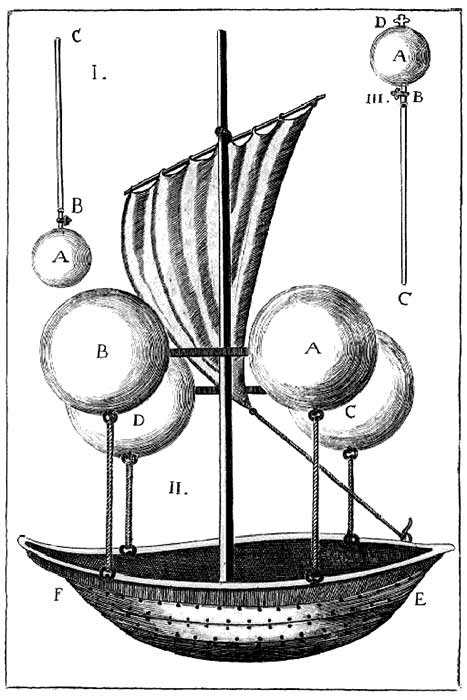
Ainu And Hopi Take To The Sky
The ancient Chinese and South Asian cultures reflected an early interest in the idea that one could build a machine to take to the air, even if the technology to be able to do so was not yet available. What is remarkable, moreover, is the universality of such an idea, and in fact, an echo of the South Asian tales of flying vehicles, and deities using such conveyances, even appears in folklore from the far northern reaches of the Asian continent. In the mythological narratives of the Ainu people of Japan and northern Russia, a character identified as the creator of the world, known as samaikur, has to journey through the celestial realm to retrieve the soul of his kidnapped princess. After a series of battles, samaikur is able to bring the soul back and return it to her body. The princess herself often is described in these tales as residing on a high mountain. Most interesting here is the fact that samaikur rides a vehicle to make his trip.

A Japanese samurai and Ainu in Hokkaido around 1775. Ainu Genre Ema (絵馬), Hakodate City Museum, Hokkaido, Japan (Public Domain)
The Ainu’s Sinta Or Flying Cradle
So there are the combined themes — as in the South Asian tales — of romance, rescue, flight, and mechanical devices. Whereas in some of the South Asian tales of flight the vehicle takes the form of an artificial bird, in the Ainu tale the device is called a sinta or shinta, which is usually the term for a baby’s cradle. However, among the Ainu this word is also used to refer to an aerial vehicle — one story even describes a character who "flew around the sky and fought from a sinta (air conveyance) like a goddess", a scene rather reminiscent of the flights of the deities in the South Asian accounts. Other stories recount the riding of a sinta through the air to travel from place to place, as a kind of aerial ‘sledge’.
For the Ainu, the connection between a ‘cradle’ and an aerial vehicle is not that peculiar, and even a traditional lullaby equates the two, with the cradle referred to as a ‘sleeping ship’. One noted translator, Donald L. Philippi, noted that: “Ainu gods are said to fly through the sky riding aboard vehicles called shinta, which is the common word for ‘cradle’. The Ainu cradle consists of a wooden frame with rails at the sides. Cords are attached to it at four places, and it is suspended from a rafter or a branch. The cradle is swung back and forth like a swing to put the baby to sleep. The ‘chariots’ in which the gods fly through the sky, emitting fierce rumblings, are clearly patterned after these cradles”.

Ainu people by Ezo Shima Kikan (c. 1840) Brooklyn Museum (Public Domain)
One Ainu kamuy yukar or ‘epic concerning deities’ speaks of a kane shinta (カネ シンタ), or ‘metal shinta’, that flies. In another story, a god in a flying vehicle visits the Ainu Spider Goddess: “One day from far out at sea, a god was heard coming this way, with a load roaring and rumbling. After a while he stopped his chariot [shinta] over my house”. Even in this brief mention, the technological aspects of flight are implied: the roaring sound, and the fact that a particular landing spot can be chosen.
In addition to such tales, it should be noted that the Ainu refer to themselves generally as ‘Sky People’, and they have a legend that says that their ancestors came from the skies on one of these sinta. There are similar claims of such origins in other cultures, although not fully documented — for example, the Torajan people of Indonesia apparently view their origins as being from the sky. In turn, the Japanese — perhaps through their historical connection with the Ainus — have tales of deities descending from the sky in the oddly-named ama no iwafune (天の岩船), literally meaning ‘stone boat of the cosmos’.





